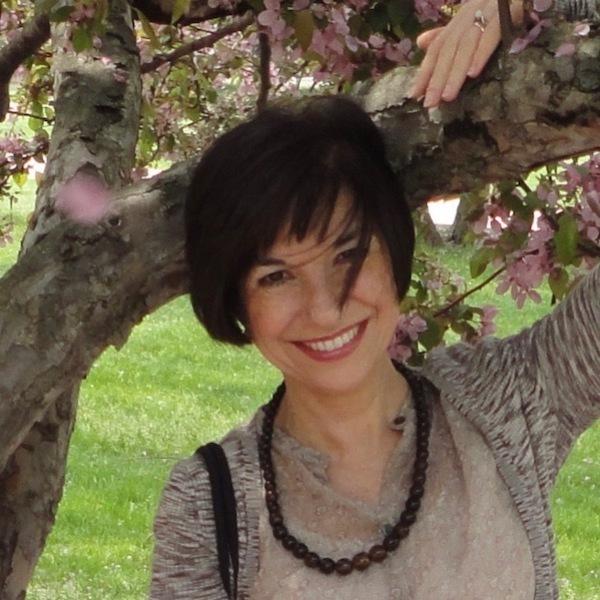
Rubén Darío (1867-1916) was one of the most important Spanish-language writers in history. Sometimes called the “poet of the Americas,” Darío has been widely celebrated throughout Latin America and the United States as a writer whose influence reached across national borders. Scholars regard him as the “father of modernismo,” an influential Spanish-language literary movement that flourished around the turn of the twentieth century.
Although most remembered for his poetry, Darío also published essays in hundreds of newspapers and journals throughout Europe and the Americas. Darío commented on such diverse topics as monopolistic capitalism, daily life in Latin America, U.S. foreign policy, and the automobile industry, helping shape the attitudes of his readership on the important topics of his day.
Notre Dame Prof. María Rosa Olivera-Williams has assembled an international team of researchers set on collecting and preserving these underappreciated yet profoundly influential essays. The Rubén Darío: Critical Editions Project aims to collect, annotate, and publish four volumes of Darío’s journalistic works and make some of these texts and annotations available in digital format online. The researchers’ main tasks include “mapping all textual variants, tracing and flagging all misattributions and misprints, adding annotations, and a scholarly apparatus that contains and references previously unknown archival material.” The project relies on the Alfonso Vijil Private Collection on Rubén Darío, housed in the Hesburgh Library here at Notre Dame. According to Olivera-Williams, this collection is “the most complete private collection of Darío-related documents in the world.” The project, now well underway, will require significant time and the support of external and internal funding sources to complete.
Toward this goal and with the support of an ISLA Interdisciplinary Research Seed Grant, Olivera-Williams and some of her collaborators at Notre Dame and the Universidad Nacional de Tres de Febrero in Argentina hosted a virtual workshop in November. The workshop, titled “Rubén Darío in the U.S.: Translation Challenges,” comprised two sessions featuring an array of guest speakers from Spain, the United Kingdom, and the United States. The first session focused on the “recovery of Rubén Darío as a Latino poet due to the wide circulation of his work…during the early years of the twentieth century.” The second session was “devoted to discussing the challenges, caveats, and future of English translations of Darío’s works.”
Olivera-Williams reported, “The workshop was very successful and demonstrated the great interest that scholars of Darío's work have in the two main themes into which the workshop was organized. For example, Shawn McDaniel (University of Southern California), and Andrew Reynolds (West Texas A&M University), whose scholarly works have addressed the emergence of latinidad in the U.S., situating Darío's poetry as an index of his immense influence on U.S. Latino/a literature, delved into efforts such as the Hispanic Literary Heritage Project and other recent archival research projects on Spanish-language newspapers published in the U.S. that have changed the way we can make sense of Darío's writings.” This first session also examined “the repercussions of Darío's work in the United States, making him the leading figure in Latinx modernism, which has been said to be more rooted and networked than canonical modernist literatures; and with the caveat against the use of Latinx as a pan-ethnic designation for anyone of Latin American descent in the United States, to what extent Darío, as a literary figure, can be recovered as part of the heritage of Latinx modernism.”
Regarding the second session of the workshop, Olivera-Williams said, “[it] attracted passionate discussion about future English translations of Darío's works, which (except for Songs of Life and Hope, translated by Alberto Acereda and Will Derusha) are often awkward and full of basic errors. Some have been reviewed as 'carelessly conceived' that leave out some of his most important works and have been confusingly ordered, obscuring Darío's poetic and intellectual evolution, 'as if his work had been created in a timeless vacuum' (González Echevarría). Anna Deeny Morales (Georgetown University), Adam Feinstein (King's College, London), Carlos Fonseca Grigsby (University of Oxford) and Francisco Aragón (University of Notre Dame, the Institute of Latinx Studies) spoke as guests on these issues. Aragón spoke about his work with Darío's poetry as 'trans-creation,' based on his experience as a Latinx child listening to his mother recite some of Darío's most popular poems from memory. Deeny Morales, Feinstein and Fonseca Grigsby addressed how and to what extent the exploration of Darío's pure and refined musicality in both his poetry and prose complicates the translation of his works into English. All of them, in addition to the participation of leading scholars such as Gwen Kirkpatrick (Georgetown University) and Daniel Link (Universidad Nacional de Tres de Febrero, Argentina), who participated in the discussion, concluded on the need to produce more accurate and authoritative critical editions of Darío's work in Spanish, including his journalistic prose, on which to base excellent English translations.”
Overall, the workshop allowed Olivera-Williams and her collaborators to enhance their proposal for external financial support for the completion of The Rubén Darío Project: Critical Editions Project.
María Rosa Olivera-Williams is professor of Latin American Literature in the Department of Romance Languages and Literatures and a Faculty Fellow of the Kellogg Institute and the Nanovic Institute, and Affiliated Faculty, Initiative on Race and Resilience at the University of Notre Dame.